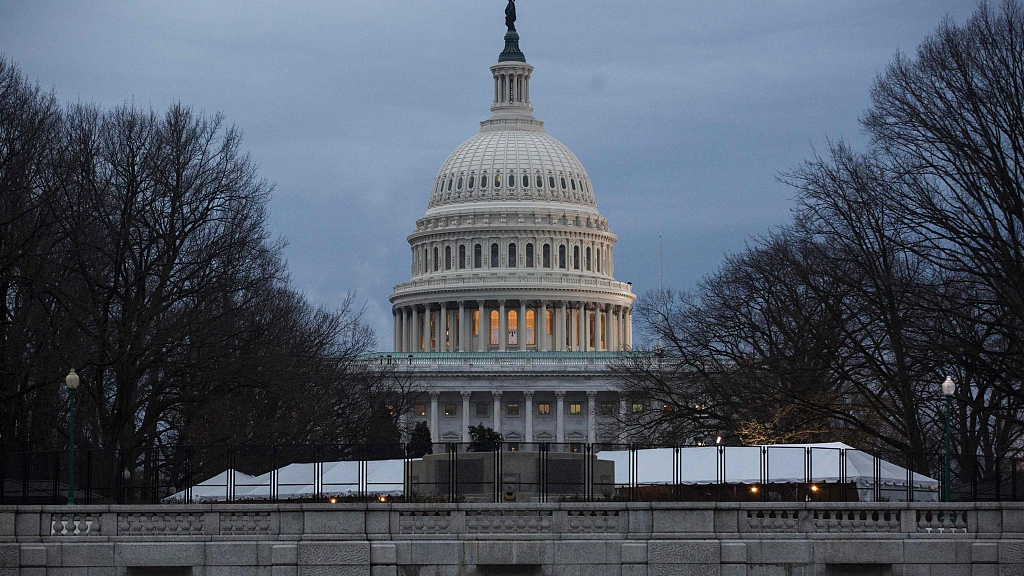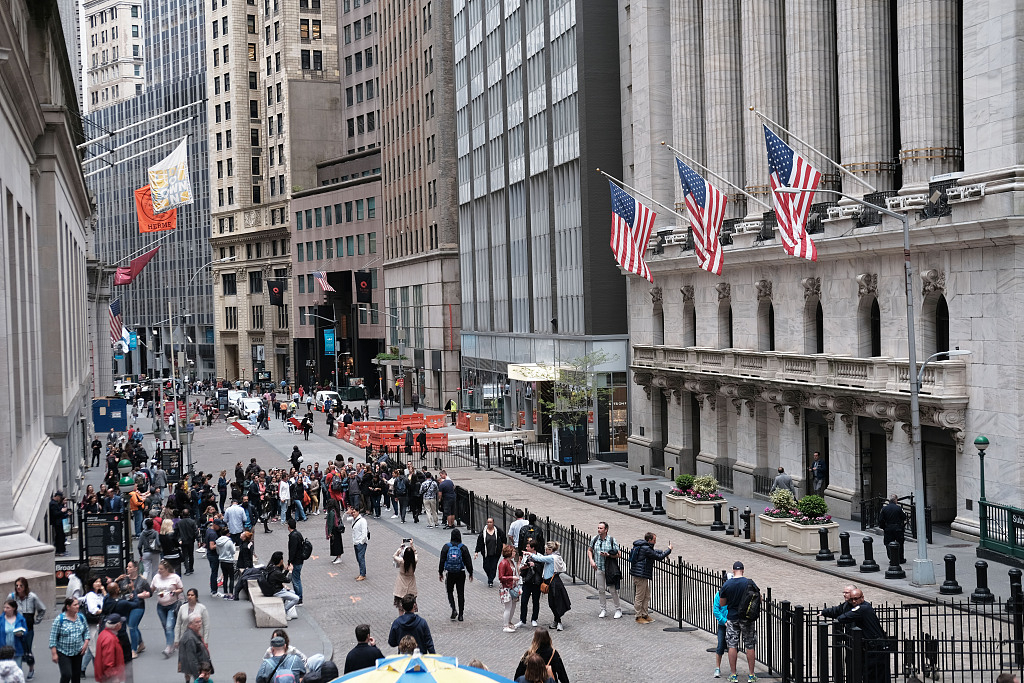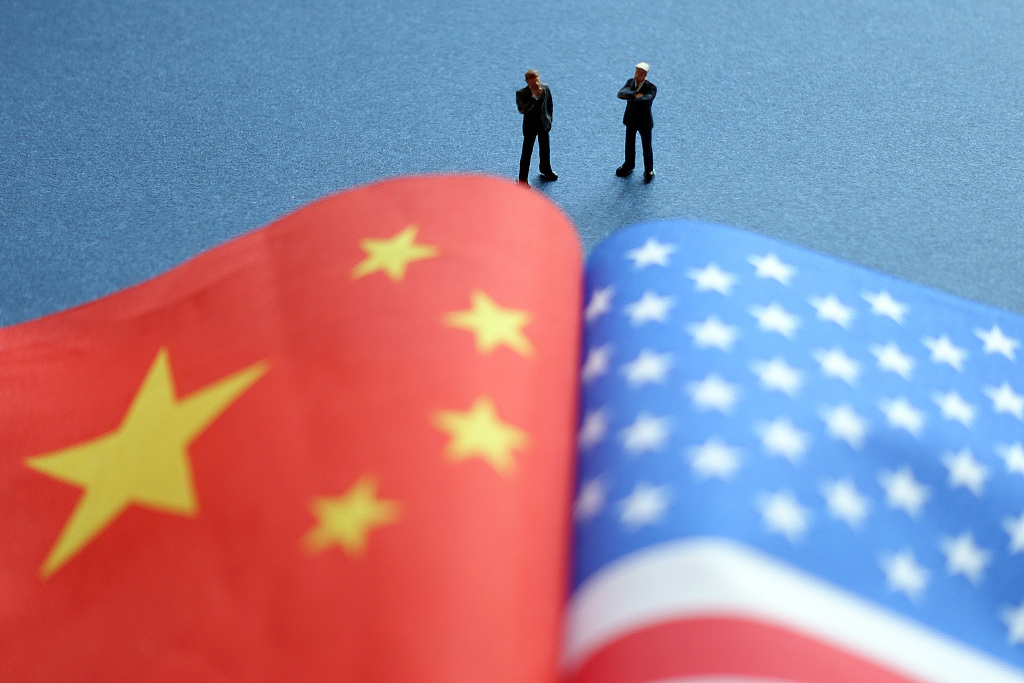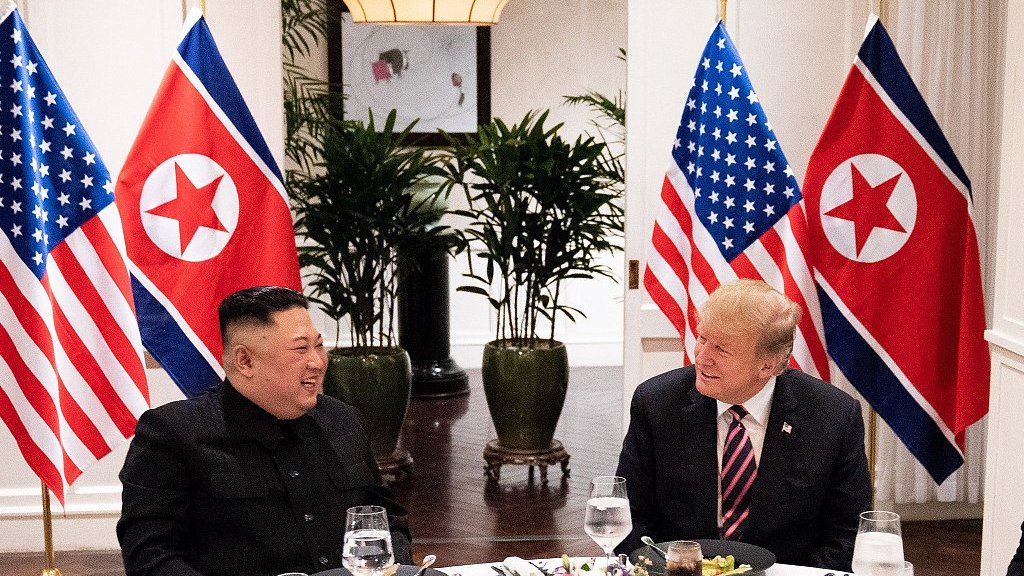

Editor's note: Rabi Sankar Bosu, an Indian freelance contributor to Chinese media outlets, writes about Chinese politics, social and cultural issues, and China-India relations with special interest on the Belt and Road Initiative. The article reflects the author's opinion, and not necessarily the views of CGTN.
Since January 2017, the White House under the new presidency has trumpeted "America First." It has embraced unpredictability as part of its foreign policy strategy. Some U.S. political elites believe the "Doctrine of Unpredictability" will supposedly give them leverage to negotiate anything with anyone at any time.
And in doing so, they have revealed themselves teenagers rather than mature adults in the field of domestic politics and international diplomacy so far. With their ultra-unilateralist, rejectionist policies, the United States has invited crises, and convinced the rest of the world that the U.S. is an "unreliable partner."
Needless to say, this single-minded transactional interpretation of U.S. interests has been leaving the U.S. administration isolated on the world stage.
It has been more than two years and the world has seen that the White House has so far been a rollercoaster ride full of stormy rhetoric against a slew of countries, namely China, the Democratic People's Republic of Korea (DPRK), Iran, Russia, India, Pakistan, and Afghanistan, to name a few, floundering on immigration and twittering from trade tariff to termination of many multilateral treaties.
Some have even taken positions that directly contradict exactly what they have previously said. Their actions, their words showed the world that the U.S. administration has abandoned the fundamental norms of mutual respect and equal consultation that guide international relations.

The New York Stock Exchange (NYSE) in New York City, May 6, 2019. /VCG Photo
Rather, they have brazenly preached unilateralism, protectionism and economic hegemony, making false accusations against many countries, particularly China.
China was frequently targeted even during the presidential campaign of this U.S. government. In the past, a certain candidate said that he would brand China a currency manipulator on day one of his administration. Fortunately, it didn't happen.
On May 28, 2019, the U.S. Treasury Department in its Semi-annual Report on International Economic and Exchange Rate Policies to the U.S. Congress said that China did not manipulate exchange rates. Since this American presidency started more than two years ago, the U.S. Treasury confirmed the fact for the fifth time.
As such, the U.S. president would be well-advised to remember what Chinese President Xi Jinping told the World Economic Forum in Davos, Switzerland, on January 17, 2017: "China has no intention to boost its trade competitiveness by devaluing the RMB, still less will it launch a currency war."
It should be noted here that since the establishment of diplomatic relations in 1979, the Sino-U.S. relations have been built upon cooperation and U.S. adherence to the "one-China policy."
But unfortunately, the relationship seems to be receiving repeated blows due to the White House's "whimsical, unpredictable, uninformed" diplomacy towards China.

China-U.S. relations. /VCG Photo
The U.S. government's endorsement of the Taiwan Travel Act (TTA) into law on March 16, 2018, U.S. arms sales to Taiwan, the Reciprocal Access to Tibet Act on December 12, 2018, slapping steep tariffs on some Chinese imports into America, severe punishment to Chinese company ZTE, the arrest of Huawei CFO Meng Wanzhou in Canada, the ban on Huawei, activities by U.S. aircraft and ships in the South China Sea – all these indicate that the president is playing the part of "Brutus" as his actions significantly differ from his words given during his first diplomatic encounter with President Xi at Mar-a-Lago in Florida in April 2017 and his first state visit to China in November 2017.
The White House has also been critical of China, especially its policy on the DPRK. It blames China for failing to mediate and persuade "belligerent" Pyongyang to change course in developing a nuclear-armed ballistic missile capable of attacking the U.S. mainland.
In September 2017, the U.S. president called DPRK Chairman Kim Jong Un a "Rocket Man." And then taking a U-turn, two summits with Chairman Kim, one in Singapore last year and the other in Hanoi, Vietnam, in February this year, were held.
Now it seems the U.S. sees nothing wrong with Kim’s actions of testing missiles. On June 11, the U.S. president told White House reporters he had received a "beautiful letter" from Kim and praised that the "DPRK has tremendous potential" under Kim's leadership.

U.S. President Donald Trump (R) and DPRK leader Kim Jong Un have dinner at the Sofitel Legend Metropole hotel in Hanoi, February 27, 2019. /VCG Photo
The "America First" doctrine is possibly a cause for greater worry for India also. India must not take its special status with the U.S. for granted since the U.S. president is not a traditional interlocutor.
It's worth noting, breaking the protocol, Trump revealed the contents of a telephonic conversation with Prime Minister Narendra Modi in February last year and said publicly that Modi had called him to say India was lowering the tariffs on Harley Davidson bikes which further soured the relationship.
Despite Modi's bear-hug of the U.S. president, the White House has called India a "tariff king" and a "freeloader" that piggybacks on other economies. As such, the Modi 2.0 government should refrain from embracing Trump's new South Asia policy since the U.S. has abandoned multilateralism and opposed free trade breaching the global trade system.
It is already clear that America's "first contradiction-in-chief" risks decreasing his country's global influence, rather than fulfilling his ultimate ambition to "Make America Great Again." Actually, he seems to make the U.S. decline more, uniting the countries together to oppose him and his protectionist policies.
(If you want to contribute and have specific expertise, please contact us at opinions@cgtn.com.)

Copyright © 2018 CGTN. Beijing ICP prepared NO.16065310-3
Copyright © 2018 CGTN. Beijing ICP prepared NO.16065310-3